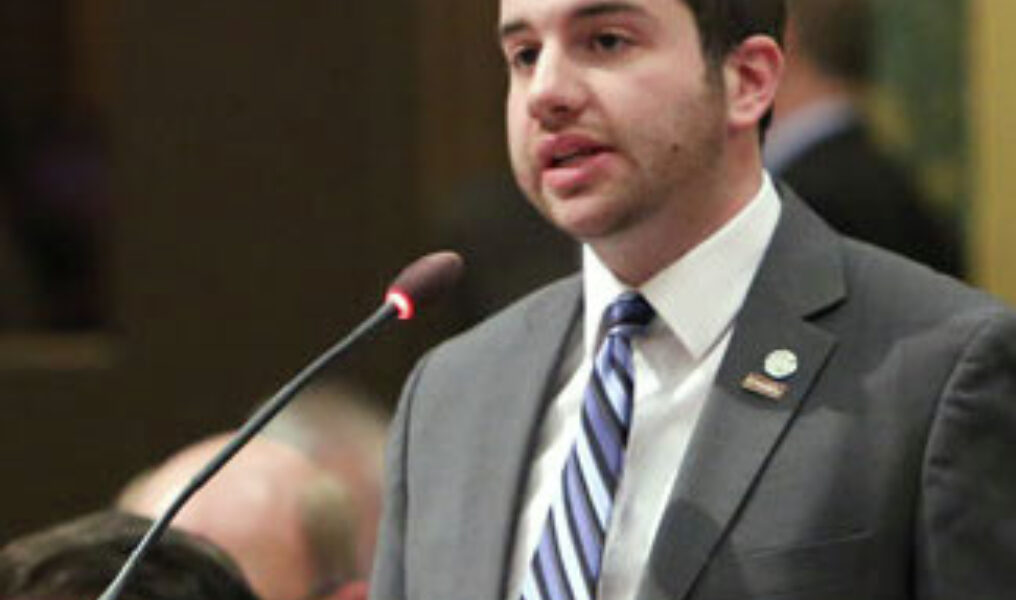With results announced just after 2 a.m. via a tweet from the Democratic Legislative Campaign Committee, Sen. Jeremy Moss made history as the first openly gay person to be elected to the 11th state Senate district.
In a tweet shortly after, Moss said he was "excited" to be one of 38 senators who will work with newly elected Gov. Gretchen Whitmer. Moss's district includes the communities of Farmington, Farmington Hills, Ferndale, Hazel Park, Huntington Woods, Lathrup Village, Madison Heights, Oak Park, Pleasant Ridge, Southfield and the Chater Township of Royal Oak.
In an interview shortly before election results were announced, BTL asked Moss what his priorities would be if elected. He emphasized that he would remain focused on transparency.
"It's important. This is probably one of the biggest issues I have campaigned on and it resonates with folks across the political spectrum," Moss said. "We are one of two states where people can't access their government records in the legislature or in the governor's office and I don't think a lot of people knew about that until we really highlighted this issue in a bipartisan fashion."
Moss stated also that expanding the Elliott-Larsen Civil Rights Act to include sexual orientation and gender identity is vital to ensuring that LGBTQ Michiganders have legal protections on their side. He emphasized also that while being open about one's sexuality in politics today can be considered a step in the right direction toward LGBTQ visibility, even a few years ago it was highly controversial.
"What once a generation ago was a liability, now I think is an asset for a candidate to be their true selves so that they can advocate for progress," Moss said. "Flash forward to just this past month, Gretchen puts it in her opening statement that she is going to fight for LGBT rights. It puts Bill Schuette on the defensive to say he doesn't have a problem with it either, even though we know his record is dismal when it comes to the rights of our community."
Moss said he feels confident in the Michigan House's ability to pass Elliott-Larsen, saying that, "If we were in session today, I bet we could pass it," but expects it to be an issue in the Senate.
"Now, with this kind of sensitivity on the Republican side to get it done, it's going to be an issue in the Senate," he said. "I think our Senate Republican officials are still a little bit far to the right of where folks are in Michigan, and so by being somebody in the Senate to advocate for our issues with our own voice in that conversation telling about our community, I think it makes a huge difference."
When asked what he feels should be priorities in the coming months, in particular for LGBTQ people, Moss is firm on housing and job security.
"I think of an older lesbian couple that I talk to often in Southfield," he said. "And as they approach their retirement years, they don't want to have to go back in the closet after living a proud and open life so that they can go back to living in a retirement community together. Because nothing protects them in Michigan law from a retirement community kicking them out for being a lesbian couple."
He then mentioned "the other end of the spectrum."
"We need to attract young talent to Michigan, and if we don't have laws that protect LGBT workers who want to contribute to our economy, they ain't gonna come here," Moss said. "And it's not even just about attracting LGBT workers — which of course we want — but millennials don't want to be in a state that's not tolerant for these kinds of social issues."
Beyond campaigning for LGBTQ-specific issues, however, Moss said that he's especially looking forward to increasing the public's awareness of the LGBTQ community generally. That's because, despite his win, Michigan Republicans still maintain a majority in the House and Senate.
"I have found that serving in the state House, more than just the policy proposals (is) showing up, being there, being somebody that they can't escape from if they oppose our rights," he said. "So that has been the biggest asset that we've been providing by being there and being visible. So that nobody has an excuse to call us 'other.' We're there, serving in the same capacity that they are. In the Senate, it's going to be historic."










